- Home
- Vince Flynn
Pursuit of Honor_A Thriller Page 2
Pursuit of Honor_A Thriller Read online
Page 2
Adams gazed into his glass in hopes that there was a drop to be found in the little indentation at the bottom, but there wasn’t. “All is not wasted,” he mumbled to himself. Tonight was proof of that. His plan was good, better than good—it was perfect. None of them would expect it. Besides, they had their hands full at the moment, trying to figure out how they’d fucked up and allowed nearly two hundred of their fellow citizens to get killed in broad daylight. They were nothing more than a bunch of goons, and these attacks were proof that their methods had served only to hearten the enemy.
“This is a big step,” Urness said as he slid his black American Express card back in his wallet. “Are you sure you want to go through with it?”
“Come on, Kenny,” Adams said to the other attorney, “I’ve never doubted your determination.”
“I just want to make sure,” Urness said with a toothy grin. “There’s going to be some very powerful people who are going to be really pissed off.”
“No doubt. Are you sure you’re up to it?”
The attorney took a moment and then said, “I’m ready for a new challenge. A cause I can believe in. I’ve made a shitload of money. Now I’d like to make a difference.”
With a raised brow, Adams said, “Like Woodward and Bernstein?”
“Yeah, except you’ll be Deep Throat.”
“Let’s hope I don’t have to wait until I’m ninety to admit my role in all of this.”
“If I’m reading this right,” Urness said, “and I usually do, I don’t think you’ll have to wait more than two years. I’ll have it all gamed by then, and you’ll be treated as a hero.”
“By some.”
Urness pushed his chair back and started to stand. “Fuck ’em . . .”
Adams laughed and stood, oblivious that his white dinner napkin had just slid from his lap to the floor.
“I’m serious. Fuck ’em. You’re never going to get those fascists on the right to understand what we’re doing, so I’m telling you right now fuck ’em and forget ’em.”
“You’re right,” Adams said with an impish grin. As Urness came around the table Adams put his arm around him. He was almost a head taller than his friend. “You’re a good shit, Kenny. I really appreciate this.”
“I’m more than happy to help, Glen. These are strange times. If we don’t take a stand, I’m afraid what kind of country will be left for our kids.”
The two men moved from the restaurant into the bar and toward the front door. Adams looked at the booze behind the bar, and like one of Pavlov’s dogs, began to salivate. He slowed his pace and rubbed his right hand over his belly. “What do you say we have one more bump before we call it a night?”
Urness abruptly stopped, looked up at his friend with a seriousness that he usually saved for his clients, and blurted out, “I think you drink too much.”
Adams looked away nervously and chuckled. “Come on, Kenny,” he said with forced levity, “a guy’s in New York for the night. What’s wrong with wanting to get a little lit up?”
“Nothing if you’re some tire salesman from Akron in town for a convention, but you, my friend, are no salesman. You have wandered out onto a very dangerous cliff. One tiny misstep, and splat.” Urness clapped his hands together to emphasize the point.
“I am well aware of what I’m doing.”
“I’m not so sure. If we’re going to do this, I want you to keep your drinking under control.”
“Hey,” Adams said in an easy tone, “I’m not going to tell you that I don’t like to drink, but I’m not driving. I’m just trying to blow off a little steam.”
“Yes, you are, and as your friend I’m telling you to tone it down. This shit is serious. If you fuck this up, Glen, and don’t handle it perfectly, you could end up in jail or worse.”
“Message received.” Adams put up his hands, feeling a bit embarrassed.
“Good, because I’m going to keep an eye on you. Now let’s get you in your car. I need to get home and review a case before I go to bed.”
CHAPTER 3
ADAMS and Urness found themselves huddled under the small awning outside the restaurant with their umbrellas in hand. Each man scanned the rain-splattered windows of the closest executive cars in search of a white placard with his name. Adams was lucky. His car was only twenty feet away. Urness said a rushed goodbye and then hurried away, darting between the puddles. At each passing sedan he stopped to search for his name. Adams plotted his own course and bolted for the rear passenger door of his Lincoln Town Car. He opened the door, closed the umbrella, and ducked into the back-seat.
The driver gave him a polite nod and a soft “Hello,” followed by a “Back to the hotel, sir?”
Adams was half tempted to ask him if he knew of any good bars and then thought better of it. Urness’s admonition about his drinking had wounded his pride. “Yes, my hotel, please.” Adams was already looking out the window, his mind trying to justify the joy he received from a good glass of booze or bottle of wine. A guy like Urness didn’t understand. He was too focused on his career to enjoy the other things life had to offer. Come to think of it, the man didn’t have a single hobby or passion other than the law.
Besides, Adams thought to himself, I’d like to see Urness walk in my shoes for a month, let alone six years. Adams felt like General Custer at times—surrounded by savages, trying to fight the good fight. Every day brought a new level of duplicity and treachery. The entire clandestine service and most of the leadership at Langley was staffed by professional liars and manipulators, men and women who had not an ounce of respect for the Constitution and the coequal branches of the Republic. There was nothing wrong with the occasional drink, he decided. He would just have to be a little more discreet about it.
Adams looked out the window as they rolled through a busy intersection. Despite the concern over his drinking, he was pleased with the pact he’d made with Urness. Considering how complicated it was, he felt the night couldn’t have gone better. Adams smiled at his bold step, allowed himself to think how sweet victory would feel when the rotten house of Langley came tumbling down on itself.
Adams realized he hadn’t felt this good in months. It was as if a massive yoke had been lifted from his exhausted shoulders. This was going to be fun—turning it around on them. He loved the irony. He was going to use one of their own ploys to take them down. He’d come to think of it as his own little covert operation. He would have to continue in his role as inspector general and look, with feigned zeal, for the leaker. He’d have to be careful, though, to not seem too eager. The operatives, while not bright, were at least instinctive. If he changed his behavior too much they would sense it, so he would have to do his job, while letting it be known that he had warned all of them this day would come. Adams couldn’t wait to see the looks on their faces when the news broke.
The car hit a pothole and began to slow. He looked up and was about to ask the driver why he was pulling over, when suddenly the driver’s-side rear door opened. A dark figure dripping with water glided into the vehicle and took a seat next him. Before Adams had the chance to figure out who it was, the door was closed and the car was moving again. Somewhere in a seemingly distant part of his brain he heard the automatic locks slam into place with an ominous thud. His mind was suddenly racing to understand what was going on. Why was this strange man in his car? Adams was about to ask him just that, when the man turned to face him.
The alcohol caused a slight delay in connecting the dots, but Adams knew instantly who he was looking at. The jet-black hair with a touch of gray at the temples, the olive skin and eyes so dark they looked like two pools of oil—they all belonged to none other than the CIA’s chief thug—Mitch Rapp. But what in the hell was Rapp doing in New York City, let alone his car?
“What?” Adams stammered. “What in the hell are you doing?”
“How was your dinner?” Rapp asked in a casual tone.
“My dinner? What in the hell are you doing? Get out of my car rig
ht now!” Panic crept into his voice as his inhibited brain began to comprehend the gravity of the situation.
“Easy, Glen,” Rapp spoke in a deep, calm voice. “You’re in no position to be handing out orders.”
“The hell I’m not!” Adams reached inside his jacket.
Rapp made no effort to stop him. “What do you think you’re doing?”
“I’m calling the attorney general, is what I’m doing!”
Rapp let out a protracted sigh, followed by, “Put your phone down.” He’d figured this was how Adams would react. Rapp took his gloved right hand, brought it up by his left shoulder, and unleashed a backhanded slap that caught Adams square in the nose. The blow was just enough to stun. Rapp did not want him bleeding—at least not yet.
Adams yelped like a dog and dropped the phone at the same time. He instinctively brought both hands up to cover his face and began complaining loudly.
Rapp grabbed the phone and started patting Adams down; sliding his hands around his waist to make sure there wasn’t another phone or pager that he didn’t know about.
“Take your hands off me!” Adams demanded.
“Stop moving,” Rapp ordered as he quickly searched the jacket pockets.
“This time you’ve gone too far!” Adams shouted. “There is no way you’re going to be able to weasel your way out of this. Kidnapping, assault . . .”
Rapp ignored the list of charges and told the driver, “It’s just the one phone.”
The driver nodded and put out his hand. Rapp gave him the phone and a second later the driver pulled over, rolled down his window six inches, and handed the phone to a man standing on the street corner.
Rapp turned his attention back to Adams, who, while done listing the potential charges, had now moved on to expressing the joy and satisfaction he would receive from watching Rapp brought to justice.
“Glen,” Rapp said, “that’s not going to happen.”
“The hell it isn’t!” Adams said emphatically.
Rapp sighed. “The chance of your ever seeing me brought to justice is zero.”
“You don’t know me very well, if you think for a minute I’m somehow going to be talked out of going to the attorney general with this.”
“I know you all too well, Glen, but apparently you don’t know me very well, if you think I’m going to let you live.”
“Live?” Adams asked incredulously. “You wouldn’t dare!”
“I’ve dared more times than I can count, and for far less than this. You’re a traitor, and unless you can somehow explain to me why in the hell you’ve been leaking classified information, I’m going to kill you.” Rapp looked into the eyes of the man sitting next to him and said, “It’s really not that complicated, and if you really believe I’m the monster you claim, you should know I’m serious.”
The seriousness of his predicament finally sank in. Adams, his jaw slack, stared at Rapp for a long moment and then, blinking, looked to the driver and shouted, “Pull over right now!” The driver ignored him, so Adams repeated himself, but even louder.
Rapp twisted in his seat, took a good look at Adams, picked his spot, and then let loose a left jab that caught the inspector general square on the chin. Adams’s head bounced off the window and then his entire body went slack.
CHAPTER 4
TOOLESBORO, IOWA
THE old farmhouse sat nestled in a cusp of trees a few hundred yards from the banks of the Mississippi River. A creek flowing from the northwest forked and flowed around the rise of land before joining up again and draining into the big river that divided America roughly in half. The eighty-acre parcel was mostly wooded, with some rolling open land to the west. Most important, it offered concealment.
Hakim had found it on his drive north from Hannibal, Missouri, the previous fall. It had been advertised in the West Burlington newspaper as the perfect retreat for solitude, and Hakim decided it was worth a look. After a brief phone call with the local realtor he learned that the family had been selling off parcels of land for over a decade. The kids were all gone—one in Chicago, two on the East Coast, and one on the West Coast, Dad was dead, and Mom had just been moved into a nursing home. All that was left to sell was the old house and two barns that sat on the heavily wooded eighty acres by the river. The realtor warned him that the land around the house flooded most springs and the driveway sometimes washed out, so it wasn’t good for much of anything except hunting.
Hakim told the woman it didn’t sound like it would work, thanked her for her time, and hung up. He then drove north on Highway 99 until he found the place, which proved to be more difficult than he had thought, which in the end of course was a good thing. From a tactical standpoint the place had a lot of positives. There wasn’t another house in sight and the local road dead-ended at the property’s driveway, which meant there would be minimal traffic, if any. Hakim took a few photos and then called the lawyer in New York and instructed him to buy the property through a game and wildlife conservancy trust that had already been set up. The lawyer handled the closing. Hakim then directed him to hire someone to put up a gate along with a lock box, and some No Trespassing signs. Since then he had been back to the property just twice, both times to lay down provisions and make sure everything would be ready for them.
As it turned out, the house ended up being one of the rare parts of the plan he and Karim had agreed on. They had labored over the best route of escape after the attacks. The airports were out of the question, as was private aviation. The Americans were well rehearsed in closing those two avenues. Next they looked at the seaports on the East Coast and then the Gulf of Mexico. During normal times, stowing away on a container ship would not be difficult, but the Americans would be at a heightened state not seen since the Towers had been taken down. Every port would have hundreds of eyes and countless security cameras looking for them.
They looked at crossing the border into Canada or Mexico. Driving through a border-controlled checkpoint seemed far too risky, so they decided they would have to make the journey on foot, hiking through rugged wilderness. Karim was confident that they could handle the physical aspect of the trip. The real problem would be finding someone they could trust on the other side. Their resources were stretched too thin already. They would have to turn outside the group to find help. Hakim, knowing the depth of his friend’s paranoia, offered his counterintuitive suggestion of driving to America’s heartland and lying low.
Like Saudi Arabia, America was an immense country with large cities as well as vast open spaces that were sparsely populated. While it was true that America was a melting pot, especially compared to a closed society like that of Saudi Arabia, it was not exactly as open as it looked on paper. All those various groups tended to cluster together, which nullified much of the potential for concealment. Karim had originally thought his friend meant driving to a city like Chicago. With over ten million people in the metropolitan area, they would be the proverbial needles in a haystack. Having actually spent some time in America, Hakim had to explain why going to Chicago was a bad idea. There were too many eyes and ears in a big city and there would surely be reward money offered. If everyone was looking for them, the best solution was to find someplace where they could let the storm blow over in absolute privacy. Karim loved the idea and gave his best friend the approval to find such a place.
Hakim stared out the small kitchen window toward the river and the rising sun, and watched a single wild turkey strut across the yard toward the woods. He looked to his right in search of the others. Five mornings in a row he’d seen the seven turkeys strut along their little trail and into the woods. Had the others been killed, was this one kicked out of the herd, or flock, or whatever it was that you called a group of turkeys? Whatever it was, Hakim could identify with him. Every morning for the past week he’d thought of going it alone. Just walk down the hill to the river and get into the little boat he’d stashed in the underbrush. He’d fire up the twenty-five-horsepower outboard and push off from
the bank. Head south like Huck Finn. Take the big river all the way to the Gulf.
Had there been a single incident that had caused the rift, or was it a culmination of events? Hakim had been searching for the answer all week. Was it when he left his best friend in the mountains of Pakistan almost a year ago? Was it the jungles of South America that had warped his friend’s brain, or had it happened much earlier? Like most childhood friendships, theirs had progressed without question or challenge. Karim was the student with the best marks. He was a naturally gifted athlete with a competitive streak unmatched by any of the other kids in the neighborhood, and he had always been the most diligent when it came to prayer. He had been intense even then, while Hakim was far more laid back. They had always complemented each other.

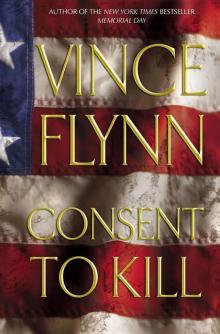 Consent to Kill
Consent to Kill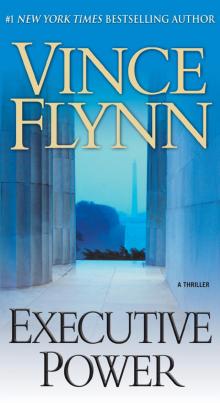 Executive Power
Executive Power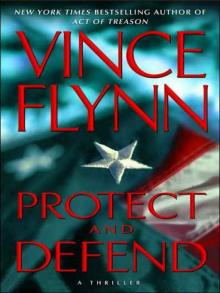 Protect and Defend
Protect and Defend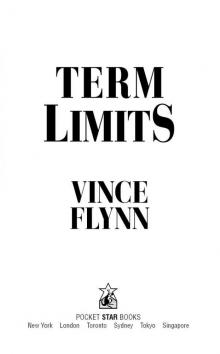 Term Limits
Term Limits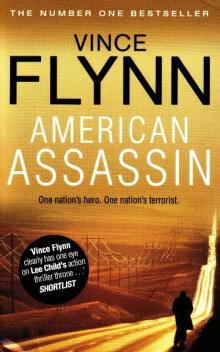 American Assassin
American Assassin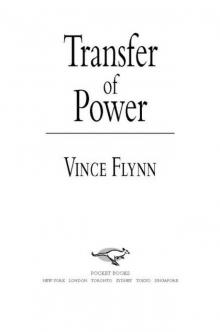 Transfer of Power
Transfer of Power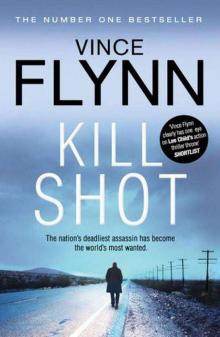 Kill Shot
Kill Shot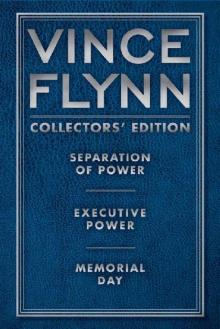 Vince Flynn Collectors' Edition 2
Vince Flynn Collectors' Edition 2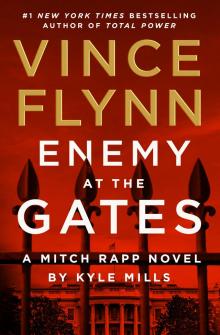 Enemy at the Gates
Enemy at the Gates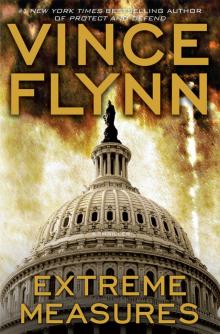 Extreme Measures
Extreme Measures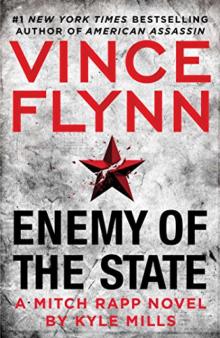 Enemy of the State
Enemy of the State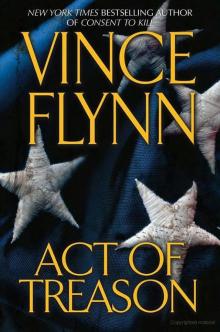 Act of Treason
Act of Treason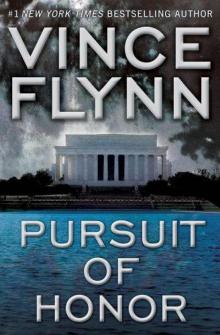 Pursuit of Honor
Pursuit of Honor The Survivor
The Survivor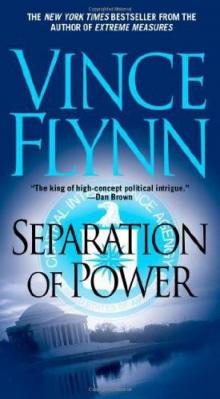 Separation of Power
Separation of Power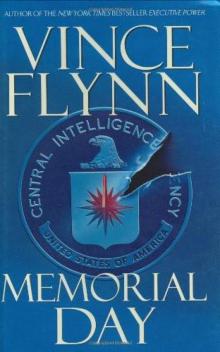 Memorial Day
Memorial Day The Last Man
The Last Man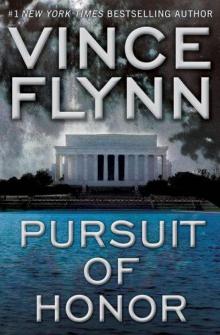 Pursuit of Honor_A Thriller
Pursuit of Honor_A Thriller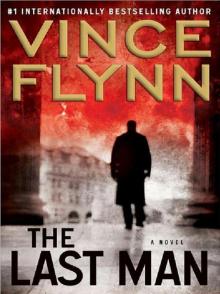 Mitch Rapp 13 - The Last Man
Mitch Rapp 13 - The Last Man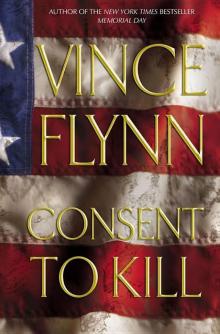 Consent to Kill:
Consent to Kill: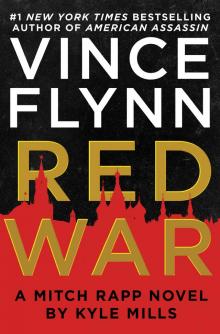 Red War
Red War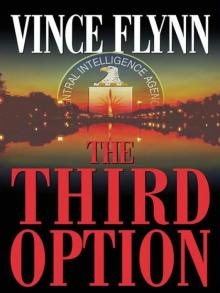 Mitch Rapp 02 - The Third Option
Mitch Rapp 02 - The Third Option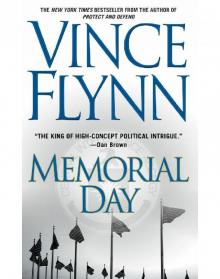 Mitch Rapp 05 - Memorial Day
Mitch Rapp 05 - Memorial Day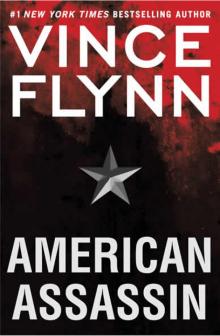 Mitch Rapp 11 - American Assassin
Mitch Rapp 11 - American Assassin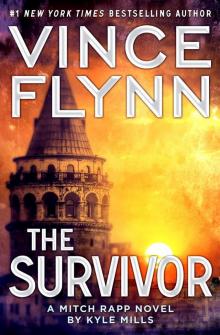 Mitch Rapp 14 - The Survivor
Mitch Rapp 14 - The Survivor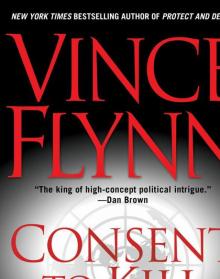 Mitch Rapp 06 - Consent to Kill
Mitch Rapp 06 - Consent to Kill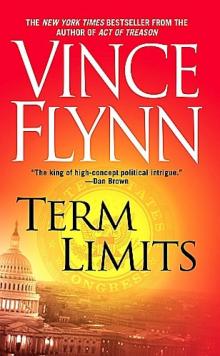 Term Limits mr-1
Term Limits mr-1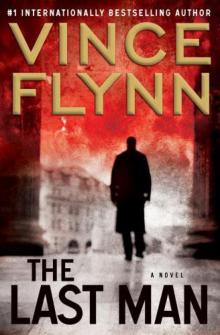 The Last Man mr-13
The Last Man mr-13 Memorial Day mr-5
Memorial Day mr-5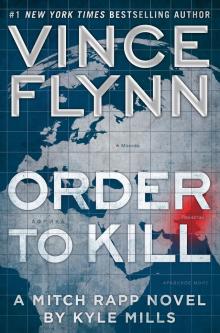 Order to Kill
Order to Kill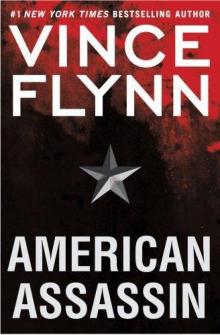 American Assassin: A Thriller
American Assassin: A Thriller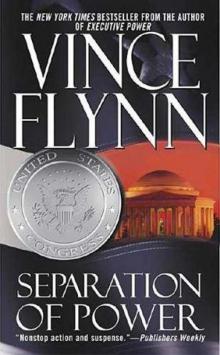 Separation of Power mr-3
Separation of Power mr-3